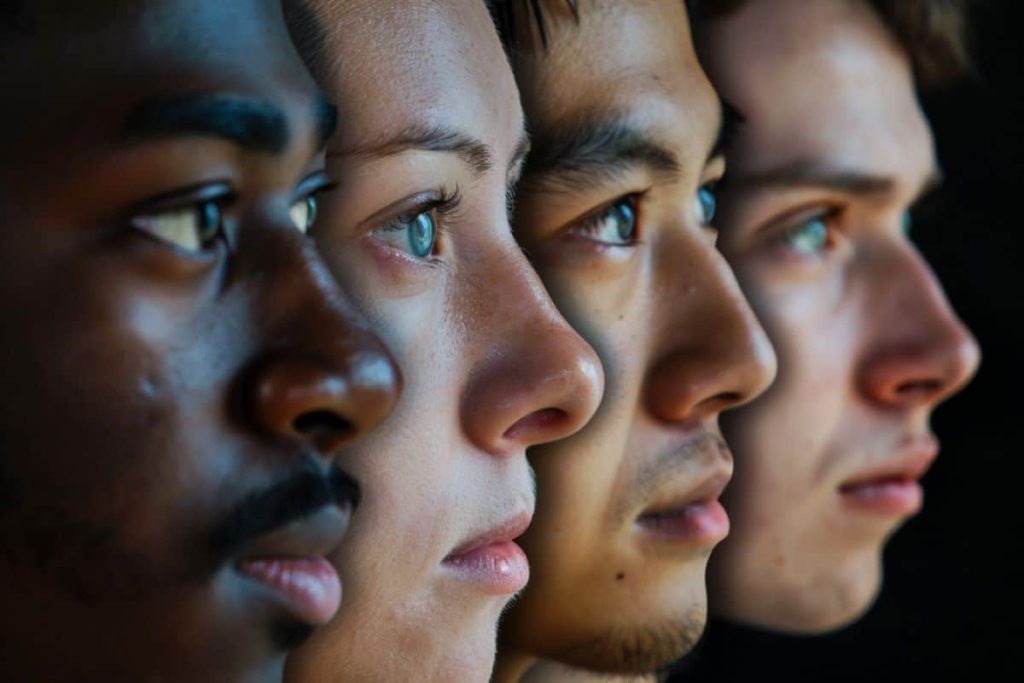summary: A new study finds that human faces tend to evolve to match their names, demonstrating the powerful influence of social expectations. The study found that adult faces were matched to names with high accuracy, but children’s faces were not.
Machine learning even found striking similarities between adults with the same name — an effect known as a self-fulfilling prophecy — suggesting that social constructs can influence appearance over time.
Key Facts:
- Adult faces evolve to match their names, due to social expectations.
- Children’s faces do not show the same name-based similarities as adults.
- The study used both human participants and machine learning to confirm the findings.
sauce: Reichman University
A new study conducted by Dr. Yonat Zwebner, Dr. Moses Miller, and Professor Jacob Goldenberg of the Allison School of Business at Reichman University, in collaboration with Noah Grobgeld and Professor Ruth Mayo of The Hebrew University of Jerusalem, has found that people’s faces tend to evolve to match their names.
The researchers wanted to find out whether parents choose names based on what they think will suit their baby’s appearance, or whether the opposite happens – that is, an individual’s facial appearance changes over the years to match the name their parents give them.
The study was published in the journal PNAS.
In this study, 9- to 10-year-old children and adults were asked to match faces with names. Findings revealed that both children and adults correctly matched adult faces with names significantly above chance levels.
But when it came to matching children’s faces to names, participants were less able to make accurate associations.In another part of the study, the machine learning system was fed a large database of human face images.
The computer found that facial representations of adults with the same name were significantly more similar to each other than to facial representations of adults with different names. Conversely, no significant similarity was found between children with the same name and children with different names.
The researchers concluded that the similarity between people’s faces and names is the result of a self-fulfilling prophecy: facial appearance changes over time to conform to the social stereotypes associated with names.
These stereotypes can form in a variety of ways, such as when a name is associated with a famous person or because of the connotations that biblical names have.
Dr. Yonat Zwebner, from the Allison School of Business at Reichman University: “Our research highlights the broader importance of this surprising effect – the powerful influence of social expectations.
“We have demonstrated that social construction, or structuring, does in fact exist, something that has been nearly impossible to verify empirically until now. Social structuring is so powerful that it can affect how people look.”
“These findings may suggest the extent to which other personal factors, such as gender and ethnicity, that may be even more important than a name, may shape a person’s personality as they grow up.”
About this Neuroscience Research News
author: Rital Ben Ali
sauce: Reichman University
contact: Lital Ben Ali – Reichman University
image: Image courtesy of Neuroscience News
Original Research: Open access.
“Does your name determine the impression you have of your face?” by Yonat Zwebner et al. PNAS
Abstract
Does your name determine the impression you have of your face?
First names are social tags that become attached to us early in life, and this study investigates the possibility of a self-fulfilling prophecy effect, whereby an individual’s facial appearance over time comes to resemble the social stereotype associated with their first name.
Using the face-name matching effect, which describes an adult’s ability to match a face to a name, we hypothesized that individuals will resemble their social stereotype (name) as adults but not as children.
To test this hypothesis, we asked children and adults to match child and adult faces and names. Results revealed that both adults and children correctly matched adult faces with their corresponding names significantly above chance levels.
However, when it came to children’s faces and names, participants were unable to make accurate associations.
To complement our lab work, we used a machine learning framework to process facial image data and found that facial representations of adults with the same name are more similar to each other than facial representations of adults with different names.
This similar pattern was not found in children’s facial expressions, strengthening the case for the self-fulfilling prophecy hypothesis.
Moreover, the face-name congruency effect was evident in adults but not in children whose faces were artificially aged to resemble adults, supporting the speculation of a role for social development in this effect.
Taken together, these findings suggest that even the appearance of our faces can be influenced by social factors such as our names, confirming the powerful influence of social expectations.


